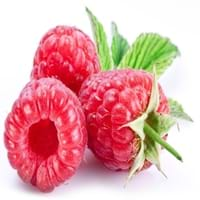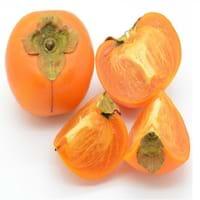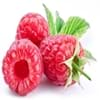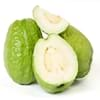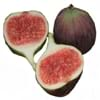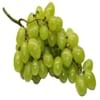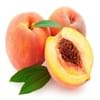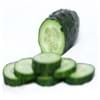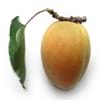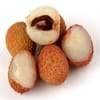Health Benefits
Cancer prevention, Heart care, Prevents macular degeneration, Reduces blood circulation problems
Cancer prevention, Heart care, Heat stroke treatment, Improves eye vision, Weight loss properties
General Benefits
Anti-inflammatory properties, Controls blood sugar levels, Digestive aid, Eye care, Helps in weight loss
Anti-inflammatory properties, Boosts immune system, Cures cough, Digestive aid, Fights against infections, Improves blood circulation
Skin Benefits
Anti-aging benefits, Brightens and lightens complexion
Anti-aging benefits, Brightens and lightens complexion, Reduces wrinkles
Hair Benefits
Acts as moisturizer, Regulates hair growth, Shiny hair
Promotes longer and healthier hair, Protects hair
Allergy Symptoms
Breathing difficulty, Eczema, Hives, Itching, Nasal congestion, Runny nose, Sneezing, Watery eyes, Wheezing
Abdominal pains, Anaphylaxis, Inflammation
Side Effects
Allergic reaction
Diarrhoea, Might affect blood pressure level
Best Time to Eat
Best if taken as a breakfast (or empty stomach), As a snack in the late afternoon, Don't eat after meal, Morning time (before lunch)
Along with meal, As a snack in the late afternoon, Don't consume at night and before bed, Morning time (before lunch)
Vitamin B5 (Pantothenic Acid)
Not Available
Vitamin C (Ascorbic Acid)
Vitamin K (Phyllochinone)
Phytosterol
Not Available
Calories in Fresh Fruit with Peel
Calories in Fresh Fruit without Peel
Not Available
Not Available
Calories in Frozen Form
Not Available
Calories in Canned Form
Not Available
Type
Berry
Berry, Tree fruit
Season
Summer
Autumn, Winter
Varieties
Amity, August Red, Boyne, Canby, Caroline, Comet, Dinkum, Dorman Red, Latham, Meeker, Black Hawk, Hayda, Lauren, Meeker and Latham
Fuyu, Jiro, Gosho, Suruga, Hiratanenashi, Hachiya, Aizumishirazu, Yotsumizo, Yokono, Costata, Ormond and Tamopan
Color
Black, Purple, Red, Yellow
Orange, Red, Yellow
Origin
Europe, North Asia
Burma, China, India, Japan
Soil Type
Sandy loam
Sandy loam, Well-drained
Climatic Conditions
Cold
Can tolerate wide range of climates
Facts about
- There are more than 200 varieties of raspberries.
- In USA, 90% of the raspberries are grown in Washington, California and Oregon.
- They do not ripe after they are picked.
- A raspberry contain 100 to 120 seeds.
- Unripe persimmons contain lots of tannin which is used to brew sake & to preserve wood in Japan.
- A small non-edible fruit of persimmon tree is crushed with water, the solution is painted on paper & used to repel mosquitoes.
Spirits
Yes
Not Available
Cocktails
Yes
Not Available
Top Producer
Russia
China
Other Countries
Azerbaijan, Canada, Mexico, Poland, Serbia, Spain, Ukraine, United Kingdom, United States of America
Azerbaijan, Brazil, Israel, Italy, Japan, Pakistan
Top Importer
United States of America
United States of America
Top Exporter
Poland
Japan
Botanical Name
Rubus Idaeus
Diospyros kaki
Synonym
Not Available
Not Available
Subkingdom
Tracheobionta
Tracheobionta
Division
Magnoliophyta
Magnoliophyta
Class
Magnoliopsida
Magnoliopsida
Subclass
Rosidae
Dillenhidae
Family
Rosaceae
Ebenaceae
Species
R. idaeus
D. kaki
Generic Group
Rose
Not Available
Compare Raspberry and Japanese Persimmon
It is important compare Raspberry and Japanese Persimmon as both the fruits have a different nutritional value. Their comparison can be done on the basis of their vitamin and mineral content, calories, benefits as well as characteristics, making it easier for us to choose the best fruit for our diet. Their general health benefits are as follows:
Raspberry Benefits: anti-inflammatory properties, controls blood sugar levels, digestive aid, eye care and helps in weight loss.
Japanese Persimmon Benefits: anti-inflammatory properties, boosts immune system, cures cough, digestive aid, fights against infections and improves blood circulation.
Fruits are also used as a remedy for various hair problems. The hair benefits of Raspberry are: acts as moisturizer, regulates hair growth and shiny hair and hair benefits of Japanese Persimmon are: promotes longer and healthier hair and protects hair. Some fruits are known to cause allergic reactions. The allergy symptoms of first fruit are: breathing difficulty, eczema, hives, itching, nasal congestion, runny nose, sneezing, watery eyes and wheezing and the symptoms of second fruit are: abdominal pains, anaphylaxis and inflammation. Get sorted Raspberry vs Japanese Persimmon comparison with the help of fruit comparison tool by fruitvs.com.
